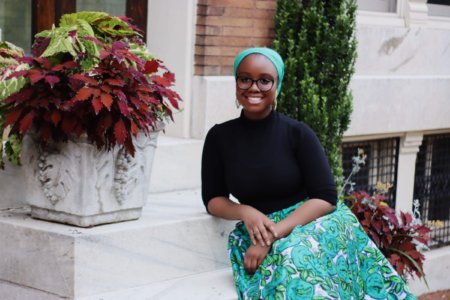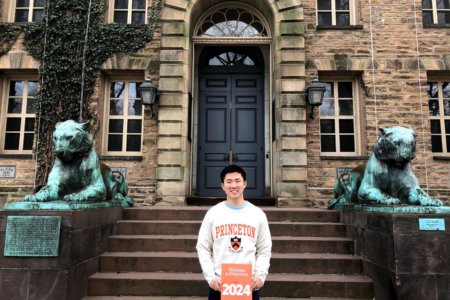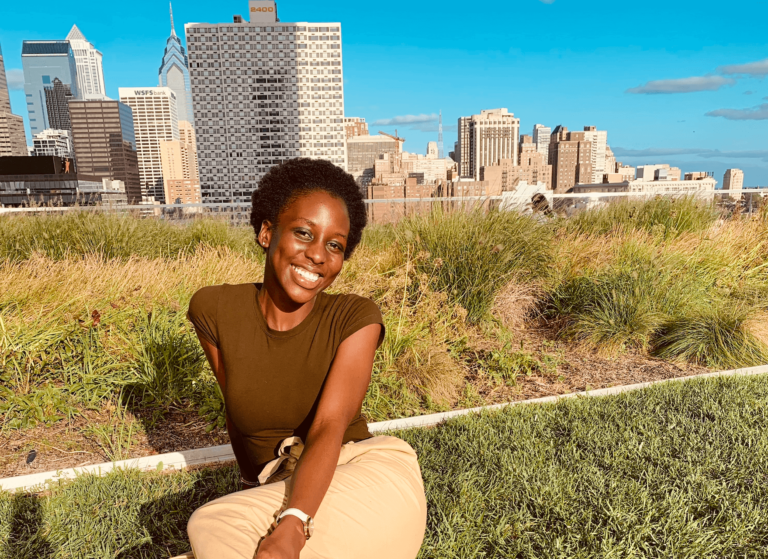
Frida Aloo is on a mission to combat racial inequality in higher education. Coming from Kenya, her first year was not a walk in the park. The business economics, public policy and international studies student had to be independent, overcome academic pressures and re-learn an entirely new learning system. The hardest, however, was facing racism and anti-Blackness. It wasn’t long before she found herself dealing with emotions and experiences that were later diagnosed as impostor’s syndrome.
When she saw others in the same boat as her, she got together with fellow UPenn student and Wharton senior Abenezer Mechale to create the Penn AfroWellness initiative. The goal is to de-stigmatise and spur open dialogues about the unique situations faced by African international students. So far, they’ve covered topics such as pandemic-related stress and anxiety as well as microaggressions and homesickness. We caught up with Aloo to learn about AfroWellness, her UPenn journey so far and what
Walk us through your initiative AfroWellness. What motivated you to start this?
Being Black was something I never had to think about before, coming from a predominantly Black country. My consciousness of my blackness was amplified when I came to the US. I noticed when I was the only Black student in class, I noticed when I was the only Black woman in a group discussion and when my points would sometimes be disregarded or talked over.
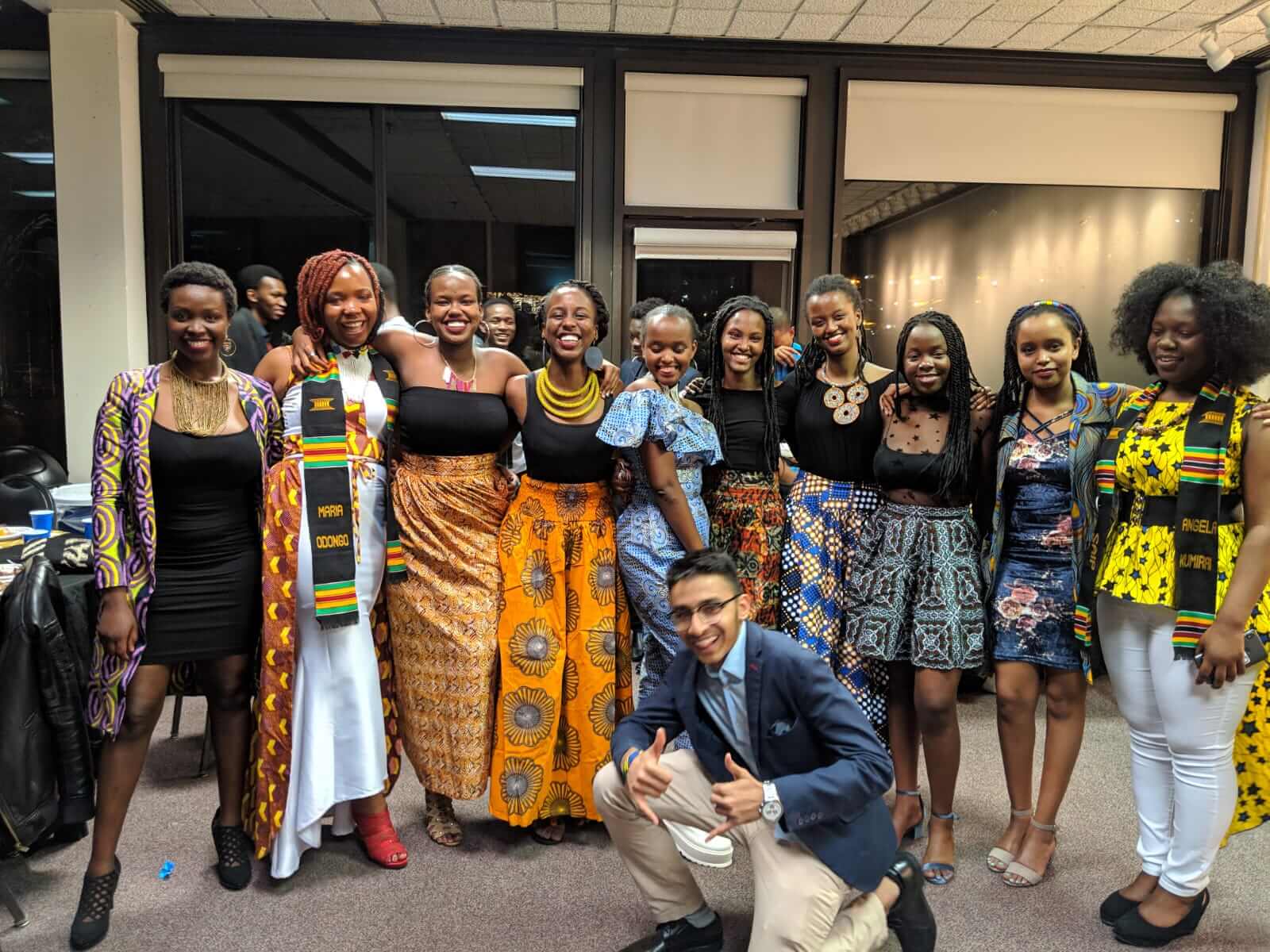
She noticed a lot of African international students were in the same boat with her struggles, some more than others. So she came together with a friend and started discussing what they were able to do for their African community at UPenn in regards to mental health. Source: Frida Aloo
This ignited impostor syndrome in me, something I had never experienced before. I began to wonder if I even deserved to be at UPenn and if I had only made it because of affirmative action. I thought I was alone until I started having conversations with fellow African international students about our similar struggles.
I noticed a lot of us were in the same boat with these struggles, some more than others. I came together with a friend and we started discussing what we were able to do for our African community at UPenn in regards to mental health.
We wanted to show that it’s okay and even beneficial to talk about the struggles with mental health. This birthed AfroWellness which aims to promote open discussions about topics like impostor syndrome, microaggressions and anti-blackness, homesickness, culture shock along with the alienation of having to be a minority in a predominantly white institution.
We also encourage the utilisation of therapy, counselling resources, and held bi-weekly events where people would come together. Here they would talk openly and share tips on how to cope. We even managed to get support from the school’s Counselling and Psychological Services, including in the form of funding to facilitate events.
With the current pandemic, we’ve had challenges of meeting in-person so we’ve had to adjust to sharing mental health tips and organise conversations every Monday through social media platforms like Instagram.
What are the goals you have for AfroWellness? What else should be done to help destigmatize conversations about mental health among students?
AfroWellness aims to show students that struggles with mental health is normal and something that should be proactively addressed rather than shamed and hidden. We want African students to feel safe, express concerns and seek help.
The capitalistic society we live in has convinced us that we are only as good as how much labour we produce. As such, when we are not doing well in school because we are experiencing financial challenges, we may feel like we are not good enough. These are factors beyond our control.
It’s important to build strategies to cope with these external factors in constructive ways and one of the most important ones that I have found is community building.
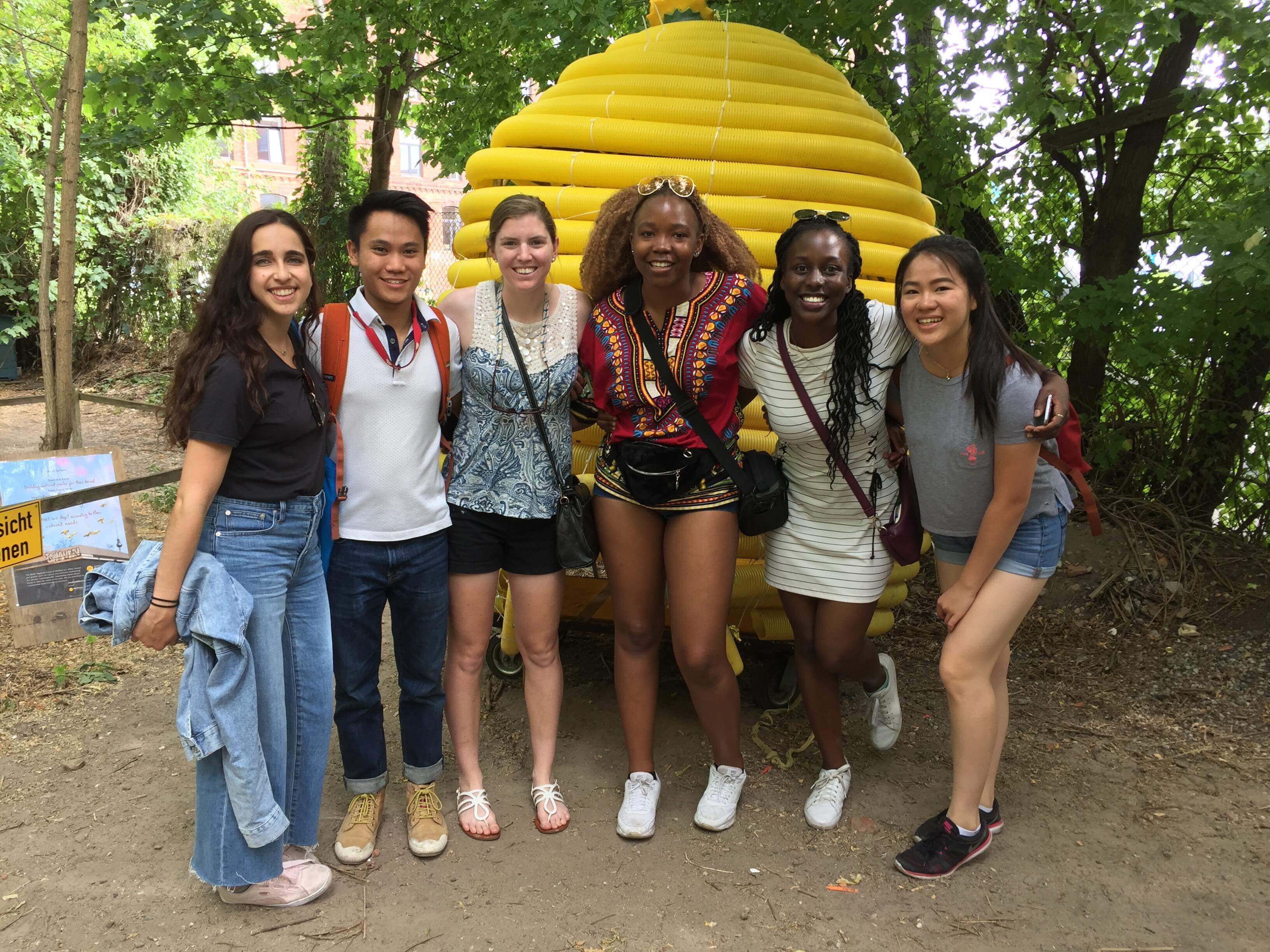
Aloo (second from the left) has had experiences abroad, here she is with a group of students in the Netherlands. Source: Frida Aloo
Why made you choose to study your course at UPenn?
I was not really sure what I wanted to study. Growing up, I thought I wanted to be a doctor. However, I realised in good time that I could not stand the physical realities of being one.
After much introspection, I concluded that the reason I had wanted to become one was because I have passion for helping people and alleviate suffering. With this, I had to figure out what that meant for me when choosing a degree.
Exposing myself to history resources, articles, books, films and volunteering activities helped me understand that I wanted to help solve the problems of inequality from a systemic level. As such, I developed a passion for policy and I chose to go to the US for college because of the endless possibilities I would receive through an American education.
My uni has a programme called the Huntsman Programme for Business and International Studies which I’m part of. It brings together students from different backgrounds to immerse themselves in diverse perspectives of business or economics while offering a flexible chance to study international issues. With this, I have been able to craft a unique path for myself within a community of passionate and talented students.
Do you have any fond memories with teachers at your uni that stood out for you? How have your lecturers supported you in your studies thus far?
One of my favourite professors of all time is a German one: Simon Richter, who is also a passionate environmentalist. I have taken a number of courses with him as they have helped me explore and delve deeper into my interests in environmental justice.
In the summer of my freshman year, I went on a summer study abroad trip he taught. We flew to Germany and the Netherlands where we were able to talk to policy makers as well as grassroots organisations about climate change and environmentalism.
This inspired me to think about policies in my own country so I conducted a summer research programme under his tutelage on urban flooding in Kenya. I also came up with resilience strategies to help solve it.
Do you get to apply the theories you gained in lecture halls and classrooms to the real world?
I have been able to practise what I learnt in class and what I am interested in through internship opportunities, volunteering experiences and independent/group research projects. I have done a consulting internship, a nonprofit internship, volunteered across different cities in the US and done independent research on climate policies as well as group research on refugee issues.
What advice do you have for international students — in particular, students of colour — wanting to study abroad in the US?
Studying abroad in the US can be challenging, particularly as an international student of colour. It’s important to surround oneself with supportive communities — other students of colour, same nationality, or ones with similar career and extracurricular interests.
It’s also important to stand up for oneself and not let experiences with microaggressions slide, especially if they are affecting your peace of mind and mental health. I had a terrible experience with a professor who shut me down in class, telling me that he could not understand my accent and therefore did not want me to speak.
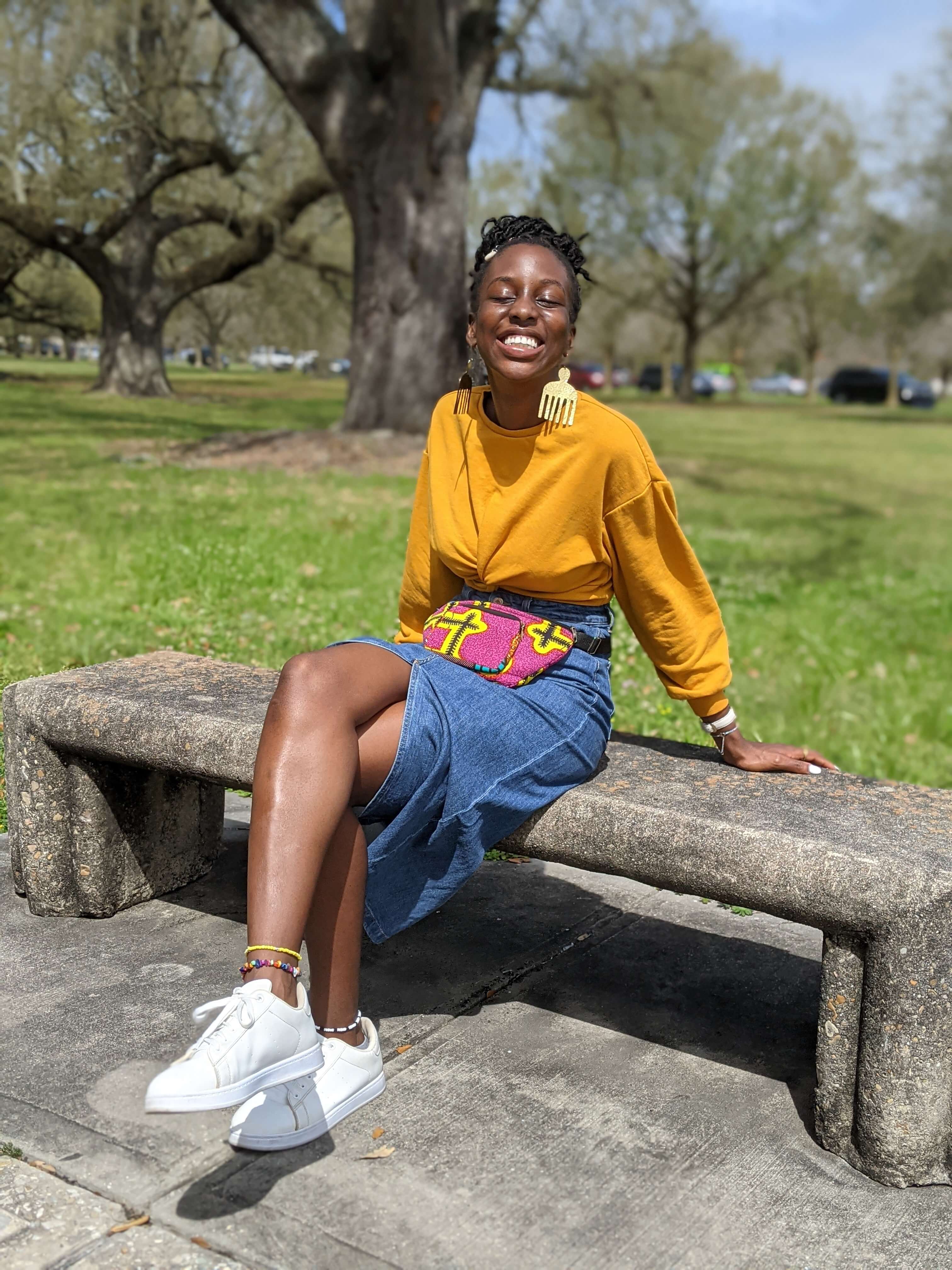
“It’s also important for international students to make sure they are keeping track of their mental health and to seek help, especially if they come from cultures that do not prioritize mental health,” Aloo says. Source: Frida Aloo
It definitely affected my self-esteem and it took a long time for me to comfortably speak in any class again. I wish I had reported that professor so he could be dealt with and so that he could not do the same to another student.
It’s also important for international students to make sure they are keeping track of their mental health and to seek help whenever needed, especially from cultures that do not prioritise it. If there are resources at your uni, make use of them. Strength and resilience are great traits.
What do you plan to do with this degree after graduating?
I plan to continue my studies in graduate school and pursue policy. Hopefully in the future, I pursue policy advocacy as a career in an attempt to combat economic inequalities in my country Kenya.









